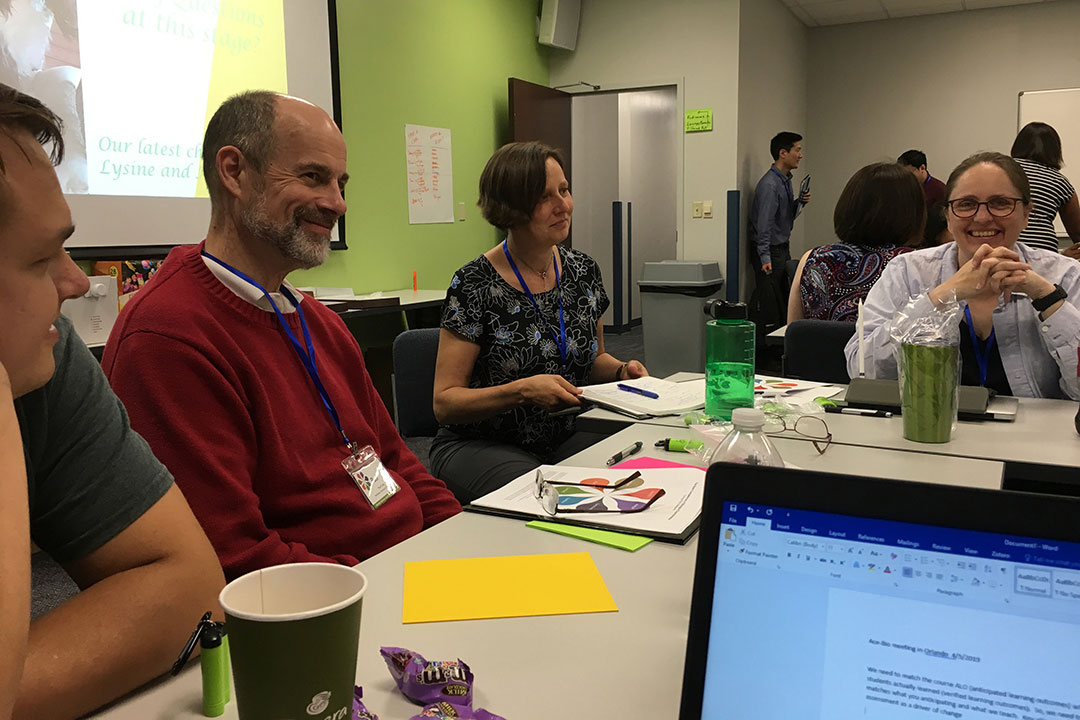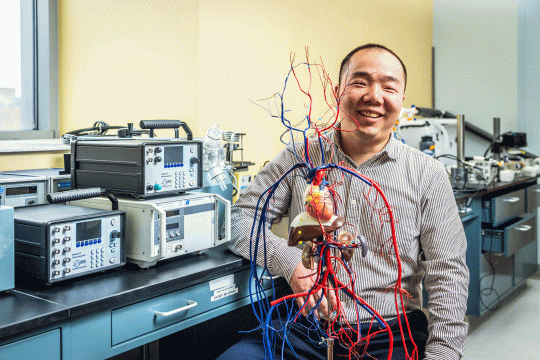RIT receives NSF grant to help universities across U.S. implement research-based biochemistry courses
Project team aims to make benefits of undergraduate research accessible to more diverse universities
Rebecca Roberts
Paul Craig, left, working with faculty at a BASIL CURE workshop to help implement the research-based biochemistry curriculum more broadly across the country.
The National Science Foundation is funding a project led by Rochester Institute of Technology scientists that will help students across the country benefit from hands-on learning experiences in biochemistry courses. The NSF awarded RIT more than $588,000 over the next five years to further implement and assess a course-based undergraduate research experience (CURE) based on the Biochemistry Authentic Science Inquiry Laboratory (BASIL) project led by RIT.
The BASIL CURE launched eight years ago based on the principle that students learn most effectively by doing rather than simply watching and listening. In the course, students use computational methods to try to predict the function of a protein based on its structure and then use wet laboratory methods to try to confirm their hypotheses.
“Research has shown that getting undergraduate students involved in research activities can greatly improve retention, completion rates, and other factors,” said Paul Craig, a professor in the School of Chemistry and Materials Science and principal investigator of the grant. “But it’s pretty clear that most campuses simply don’t have enough faculty or lab space to have every student have an individual research experience with a professor. The BASIL CURE is a lower-cost model that can be implemented with one professor and 12 to 15 students who are still doing research and getting many of the same benefits as the traditional one-on-one experiences.”
So far, the BASIL CURE has been fully implemented on 10 campuses across the country and been explored or some of the modules have been adopted at 25 others. One of the major goals of the new NSF funding is to add 50 more campuses to the project over the next five years through a series of recruiting and training workshops and a mentoring program. Craig said the team will be intentional about diversifying the type of schools they engage with and that they intend for at least 30 percent of the new campuses to be historically Black colleges and universities (HBCUs), tribal colleges, and other minority-serving institutions.
Craig, co-PI Associate Professor Suzanne O’Handley, and collaborators from across the country will survey and interview participating faculty to identify barriers to adoption and other ways to improve upon the course. The project leaders anticipate providing support to participating faculty through a variety of training and workshops, including the Professional development for Emerging Education Researchers (PEER) program led by researchers from RIT’s Center for Advancing STEM Teaching, Learning and Evaluation (CASTLE).
For more information about the project, go to the BASIL CURE website.












